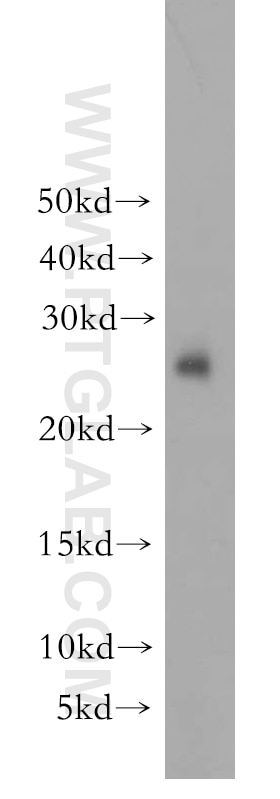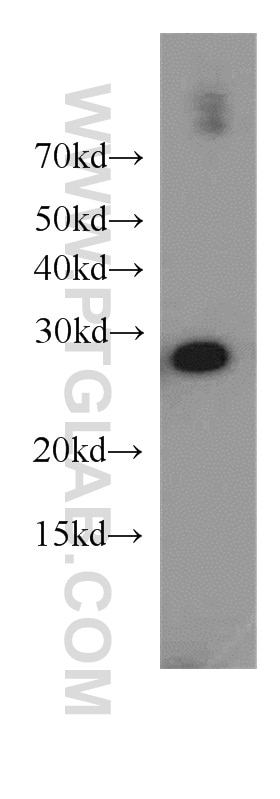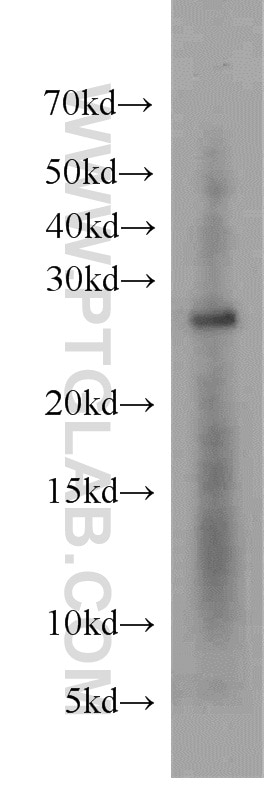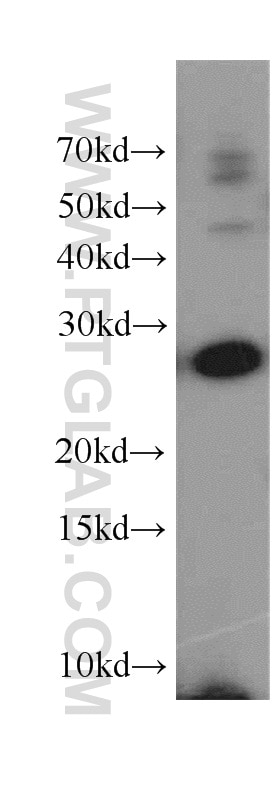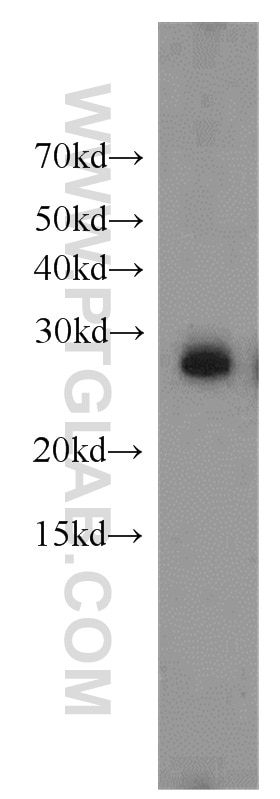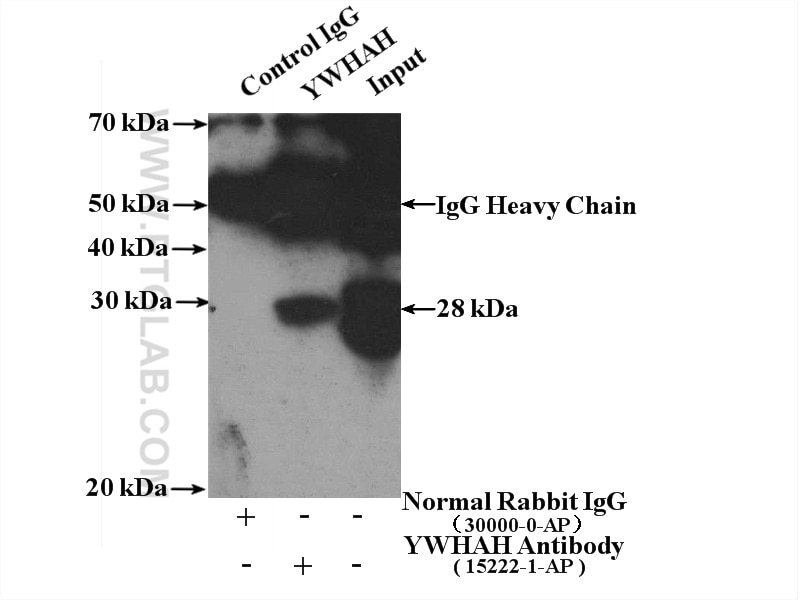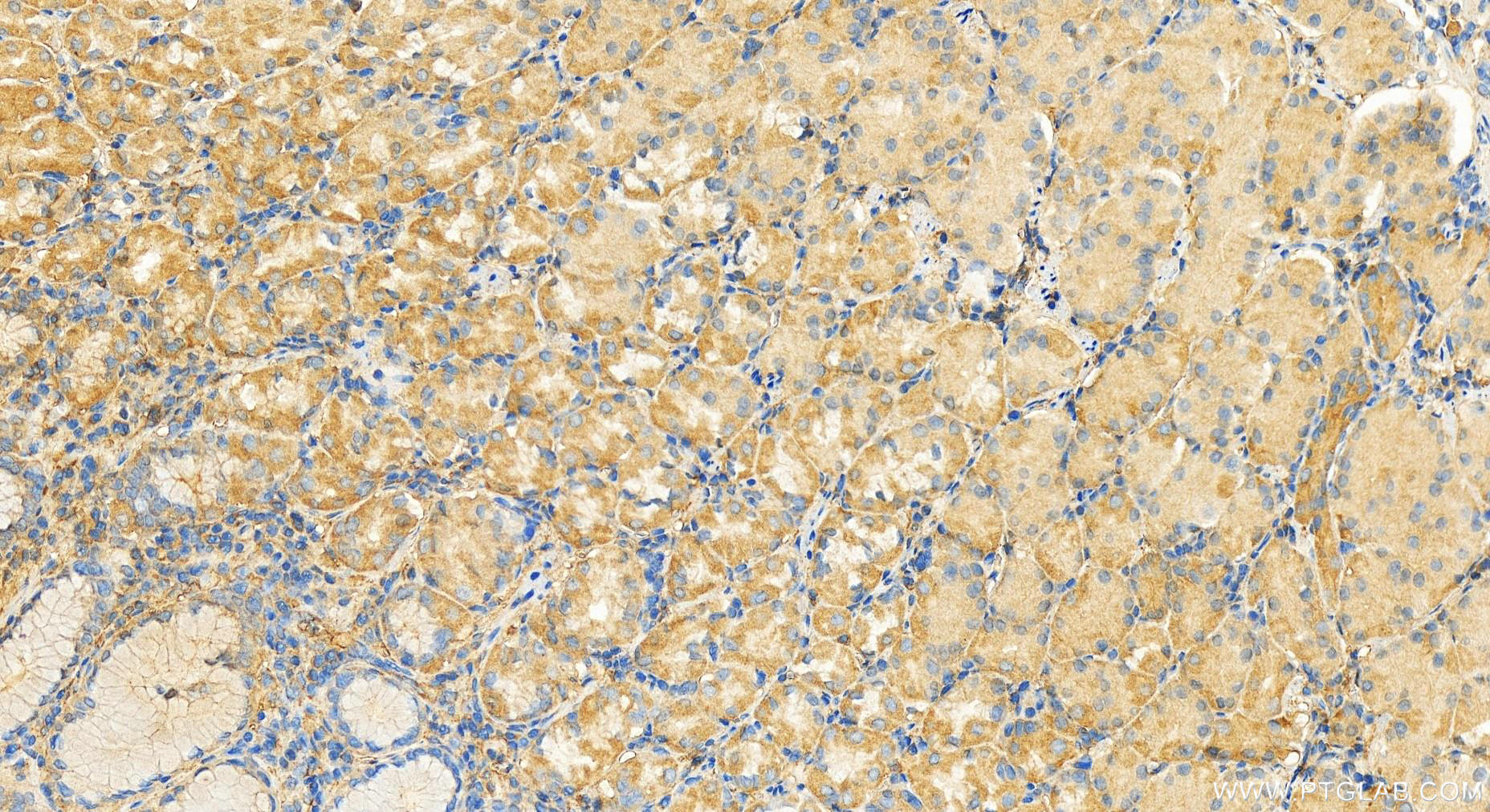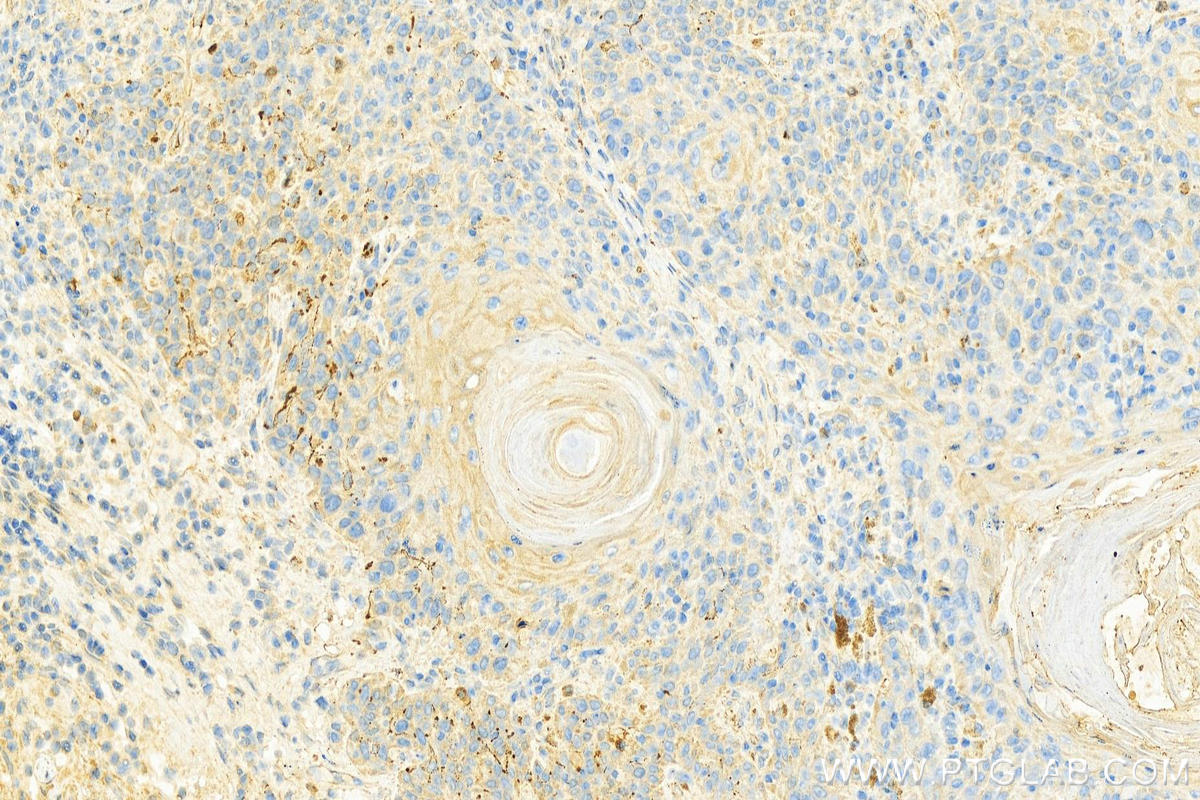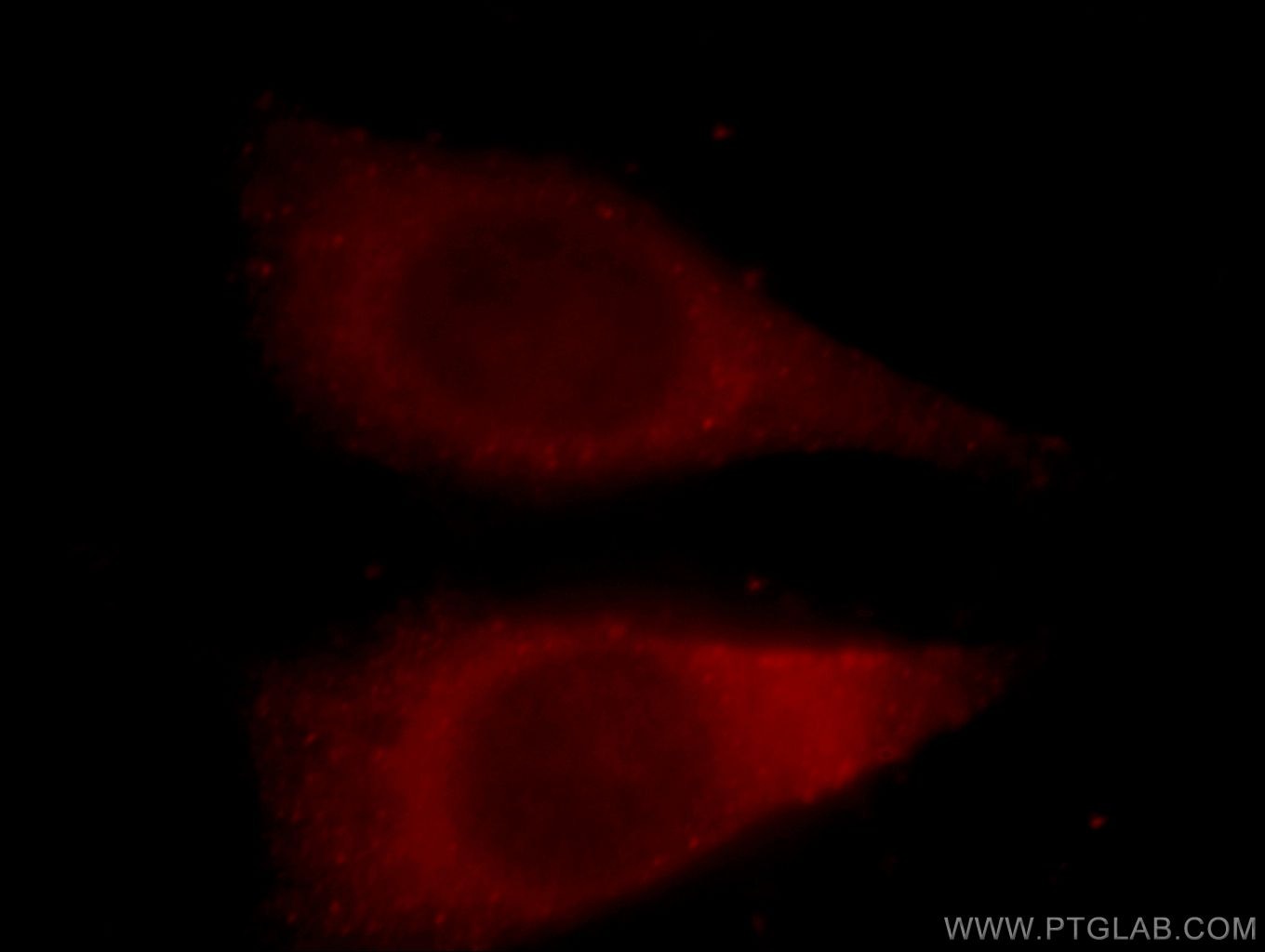Validation Data Gallery
Tested Applications
| Positive WB detected in | human brain tissue, A431 cells, mouse brain tissue, NIH/3T3 cells, Raji cells |
| Positive IP detected in | NIH/3T3 cells |
| Positive IHC detected in | human skin cancer tissue, human stomach tissue Note: suggested antigen retrieval with TE buffer pH 9.0; (*) Alternatively, antigen retrieval may be performed with citrate buffer pH 6.0 |
| Positive IF/ICC detected in | Hela cells |
Recommended dilution
| Application | Dilution |
|---|---|
| Western Blot (WB) | WB : 1:500-1:2000 |
| Immunoprecipitation (IP) | IP : 0.5-4.0 ug for 1.0-3.0 mg of total protein lysate |
| Immunohistochemistry (IHC) | IHC : 1:50-1:500 |
| Immunofluorescence (IF)/ICC | IF/ICC : 1:10-1:100 |
| It is recommended that this reagent should be titrated in each testing system to obtain optimal results. | |
| Sample-dependent, Check data in validation data gallery. | |
Published Applications
| KD/KO | See 1 publications below |
| WB | See 5 publications below |
| IF | See 3 publications below |
| IP | See 1 publications below |
Product Information
15222-1-AP targets YWHAH in WB, IHC, IF/ICC, IP, ELISA applications and shows reactivity with human, mouse, rat samples.
| Tested Reactivity | human, mouse, rat |
| Cited Reactivity | human, mouse, rat |
| Host / Isotype | Rabbit / IgG |
| Class | Polyclonal |
| Type | Antibody |
| Immunogen | YWHAH fusion protein Ag7435 相同性解析による交差性が予測される生物種 |
| Full Name | tyrosine 3-monooxygenase/tryptophan 5-monooxygenase activation protein, eta polypeptide |
| Calculated molecular weight | 28 kDa |
| Observed molecular weight | 28 kDa |
| GenBank accession number | BC003047 |
| Gene Symbol | YWHAH |
| Gene ID (NCBI) | 7533 |
| RRID | AB_10863119 |
| Conjugate | Unconjugated |
| Form | Liquid |
| Purification Method | Antigen affinity purification |
| UNIPROT ID | Q04917 |
| Storage Buffer | PBS with 0.02% sodium azide and 50% glycerol , pH 7.3 |
| Storage Conditions | Store at -20°C. Stable for one year after shipment. Aliquoting is unnecessary for -20oC storage. |
Background Information
YWHAH (also known as 14-3-3 eta) is a member of 14-3-3 proteins which were the first phosphoserine/phosphothreonine-binding proteins to be discovered. 14-3-3 family members interact with a wide spectrum of proteins and possess diverse functions. Mammals express seven distinct 14-3-3 isoforms (gamma, epsilon, beta, zeta, sigma, theta, tau) that form multiple homo- and hetero- dimmers. 14-3-3 proteins display the highest expression levels in the brain, and have been implicated in several neurodegenerative diseases, including Alzheimer's disease and amyotrophic lateral sclerosis. This antibody was raised against the full-length YWHAH.
Protocols
| Product Specific Protocols | |
|---|---|
| WB protocol for YWHAH antibody 15222-1-AP | Download protocol |
| IHC protocol for YWHAH antibody 15222-1-AP | Download protocol |
| IF protocol for YWHAH antibody 15222-1-AP | Download protocol |
| IP protocol for YWHAH antibody 15222-1-AP | Download protocol |
| Standard Protocols | |
|---|---|
| Click here to view our Standard Protocols |
Publications
| Species | Application | Title |
|---|---|---|
Front Cell Dev Biol Circulating Exosomal MiR-107 Restrains Tumorigenesis in Diffuse Large B-Cell Lymphoma by Targeting 14-3-3η. | ||
Cell Biol Int 14-3-3-η interacts with BCL-2 to protect human endothelial progenitor cells from ox-LDL-triggered damage | ||
Eur J Pharmacol Capsaicin prevents mitochondrial damage, protects cardiomyocytes subjected to anoxia/reoxygenation injury mediated by 14-3-3η/Bcl-2. | ||
J Exp Clin Cancer Res 14-3-3ζ inhibits heme oxygenase-1 (HO-1) degradation and promotes hepatocellular carcinoma proliferation: involvement of STAT3 signaling.
| ||
Cells Identification of YWHAH as a Novel Brain-Derived Extracellular Vesicle Marker Post Long-Term Midazolam Exposure during Early Development | ||
J Hazard Mater YTHDC2 mediated RNA m6A modification contributes to PM2.5-induced hepatic steatosis |
